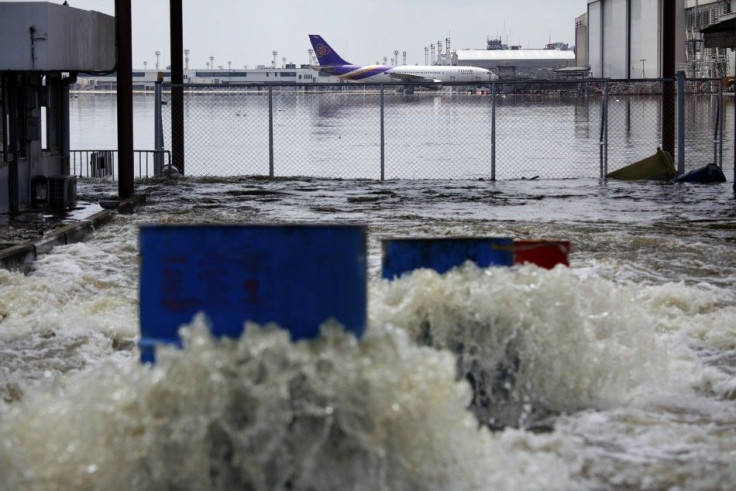Bangkok Flood: Latest News on Evacuations and Travel Alerts for Thailand

Officials in Thailand are beginning to fear the worst for their all-important tourism industry - and the latest news isn't good. The floods that have swamped the country over the last two months are slowly encroaching on the capital, Bangkok. The city's second largest airport temporarily shut down on Tuesday due to flooding and is not expected to reopen until November. Meanwhile, several nations have issued travel alerts warning against visiting the Land of Smiles.
At present, Bangkok's Suvarnabhumi International Airport is operating normally, however the government has declared a five-day special holiday to allow people to prepare, and in some cases escape from the floods.
Tens of thousands of Bangkok residents crammed into the city's bus and train stations on Wednesday to flee the flood-threatened capital as the city's governor mandated official evacuations in two swamped northern districts - Don Muang and Bang Phlat - that are both already partially submerged.
Authorities were also forced to move hundreds of inmates (many on death row) from three prisons to facilities in other provinces.
Canadian officials have issued a Travel Warning for Thailand urging citizens to exercise a high degree of caution in the Southeast Asian country:
Foreign Affairs and International Trade Canada advises against non-essential travel to Bangkok and flood-affected areas. Areas of northern and eastern Bangkok, as well as outlying districts, and 28 provinces of Thailand are experiencing significant flooding. According to the Thai government, all of Bangkok faces serious flooding risk. These conditions are causing travel disruptions and have interrupted other essential services, such as the power supply and communications in some affected areas. Further disruptions to essential services, as well as shortages of drinking water and some food items may occur, including within the Bangkok Metropolitan Area. More than 350 deaths have been attributed to the flooding.
The Hong Kong government issued a red travel alert for flood-hit areas in Thailand including the capital on Tuesday, urging the city's residents to avoid non-essential travel to the popular holiday region.
Residents intending to visit these areas should consider adjusting their travel plans, the government said in its statement.
The Red alert is the second highest in a three-tier system.
The warning came on the tails of several local travel agencies cancelling package tours to Bangkok through the end of the month.
Newspapers in Thailand are careful to point out that while Bangkok is bracing for the worst, popular tourist areas like Phuket, Pattaya, and Ko Samui - some of Thailand's biggest draw cards for tourists - are fine.
Tourism is a vital part of Thailand's economy, employing about 15 percent of the workforce and contributing about six percent of the GDP.
While most of Bangkok's tourist areas and shopping districts have not been affected by the flooding, the Chao Phraya River that winds through the city is high, and canals have burst their banks in some northern districts.
Officials fear the situation could get even worse in the coming days.
© Copyright IBTimes 2025. All rights reserved.






















